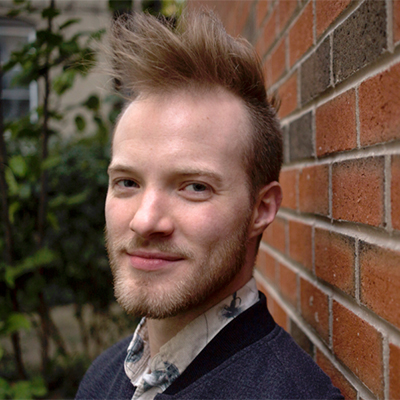
Tristan Fehr has a deep interest in science policy, and particularly science communication. As a postdoctoral fellow in neuroscience, Tristan knows how important it is to be able to clearly convey scientific information to the general population. So when a colleague recommended he take a National Science Policy Network Wiki Scientists course, he signed right up.
“I have been looking for forums to share science and policy more publicly than academia’s usual route of writing for scientific audiences in journal publications, which are often limited to people who can reach behind paywalls and translate scientific jargon,” he says. “Writing for Wikipedia offers a chance to share research and policy information with anyone who has access to the internet, and this truly open-source approach really drew me in!”
The NSPN Wiki Scholars course, led by Wiki Education’s Will Kent, met weekly via Zoom for six weeks. Tristan says it gave him insight into best practices for editing Wikipedia, both in terms of policy and culture among the community of Wikipedia contributors.
“When I read articles now, I am more aware of how easy it would be to add to and edit them, and it makes the whole experience feel more alive,” he says. “In many respects Wikipedia is such an obvious choice for public communication of complex topics that I overlooked it as a writing outlet before—but now I know how easy it is to write and edit, it seems definitely like a missed opportunity to not learn how to get involved.”
After all, he says, Wikipedia comes up first on many search engines, so articles serve as primary bridges between subject matter experts and members of the public.
“When expert contributors cultivate a greater understanding of their fields by freely sharing their expertise on Wikipedia, the articles they touch could become key to recruiting future members of their fields, and to increasing taxpayer and policymaker support for their domains,” Tristan says.
Tristan’s academic studies are on the effects of early-life exposures to anesthesia on the brain — so it made sense to him to create Wikipedia’s article on the topic.
“When I was deciding how I wanted to contribute early in the course, I started by looking at the pages for different general anesthetics. Although several decades of research and a policy recommendation exist related to how anesthetics can impact the brain and behavior when given in early life, I was surprised that pages for individual anesthetics either didn’t include this information, or only had out of date references. Rather than adding the same information across 8-10 articles, I decided to write a new umbrella article that could bridge all of them,” Tristan explains. “I have been immersed in this literature for years, which made it a lot easier to write from a place of familiarity.”
Tristan loved the speed of publishing. In comparison to academic journals, where publishing takes months or years, Wikipedia’s ability to reach people nearly immediately is “intoxicating”, he says. Tristan also enjoyed seeing other Wikipedia editors engage with the article he started, making edits to improve the article.
He hopes to carve out some time each week to keep editing. Initially, Tristan plans to add more wikilinks to make his article more accessible across other Wikipedia articles. Then he plans to tackle some of his other interest areas, such as translational ecology, to help bridge gaps in policy awareness.
“Being part of the Wiki Scientists course was a blast, and I am incredibly grateful to the National Science Policy Network and Wiki Education for making the opportunity possible!” Tristan says. “Through this experience I have also seen what a useful tool Wikipedia can be for honing science communication skills, and for increasing public engagement within the policy sphere by making otherwise esoteric topics tangible, relatable, and clear. Not only does writing for a broader audience help me build transferable skills of engaging across stakeholders, but it will hopefully help others adjacent or interested in my field to have a better understanding to guide their decisions, too.”
Interested in hosting a course like the NSPN course Tristan took? Visit partner.wikiedu.org.
Image credits: Illustrated by Jasmina El Bouamraoui and Karabo Poppy Moletsane, CC0, via Wikimedia Commons; Nebs642, CC BY-SA 4.0, via Wikimedia Commons
